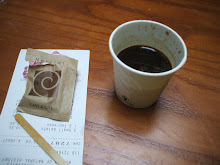I've had the urge to watch Rachel Boynton's documentary Our Brand Is Crisis since it was released and got a lot of press last year. The film is a fascinating document about the ways in which the U.S. has exported its political inventions along with so much more of our culture.
Boynton followed James Carville, Tad Devine, Stan Greenberg, and Jeremy Rosner to Bolivia as they joined the 2002 Gonzales presidential campaign in Bolivia. In the course of developing the relationships with the consultants and the candidate, she clearly developed a remarkable level of trust. Her camera follows the events of the actual campaign as they craft the message--the brand--and work to build Goni's poll numbers. But it doesn't just follow the movements of consultants and candidate; the camera seems to be part of the process, an omniscient but intimate collaborator and recorder. It is stunning work, particularly when you consider that the process is, at times, a frightening validation of electoral cynicism.
Spoiler alert... stop reading if you don't want to know what happens.
What she also achieves beautifully is building the two parts of the story--the story of Goni and Bolivia, and the story of the consultants for whom losing is not part of the equation. Ultimately, these lines come together explosively when Boliva melts down in the year after Goni is elected--with far less than a majority, I might add. The consultants have to face failure, and Goni returns to the States where he was raised after his own father went into exile.
As a writer, what fascinates me about this is that she could not have known the outcome of this when she took on the project in 2001. I wonder, in fact, what kind of storyline she envisioned as she began writing and shaping the documentary. How did it end up on storyboards? And yet, in a bittersweet turn of fate, she ended up with compelling film because all hell broke loose in ways none of the parties involved predicted.
On a personal note, watching the film and listening to part of the director's commentary reminded me of meeting Boynton at Interlochen in 1989. She was studying theater — fifteen, sharp and intellectually mature beyond her years. It's good to see her succeeding.

